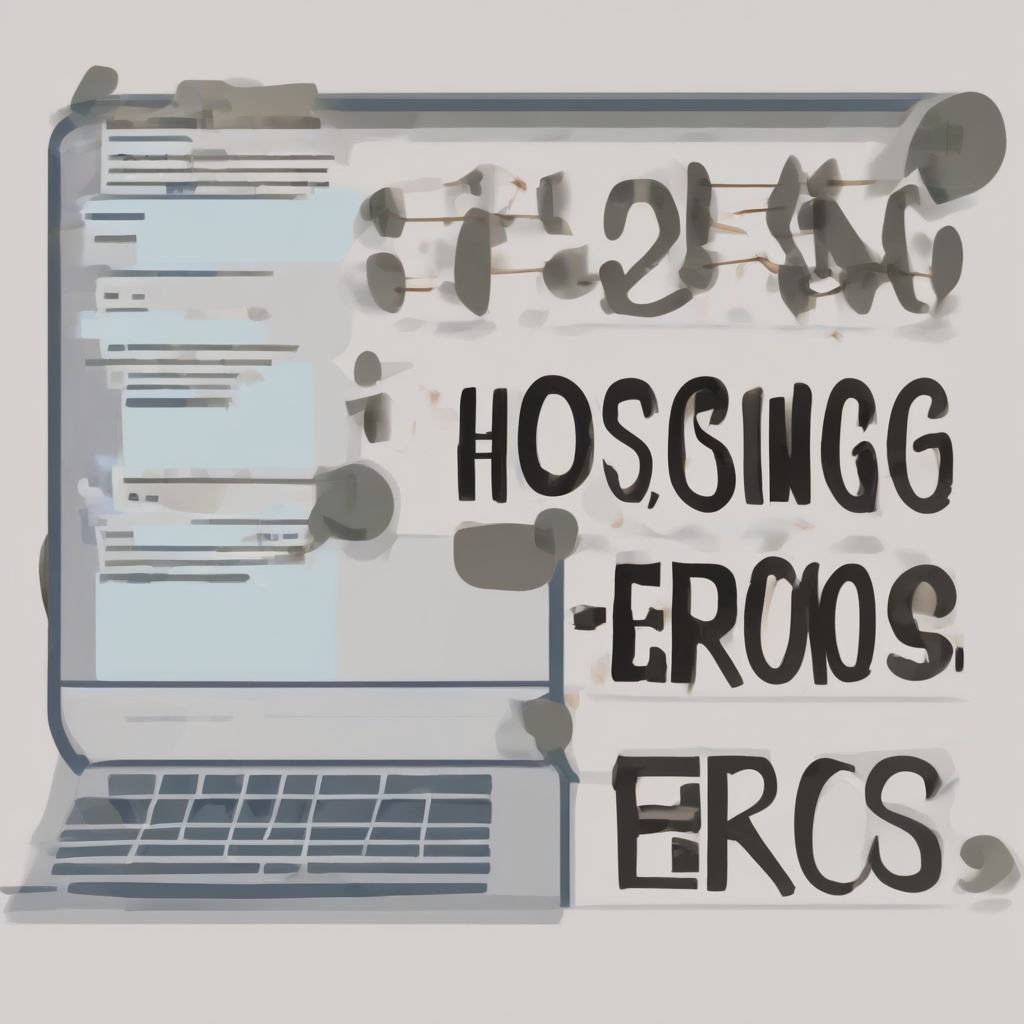Unlocking the Potential of Free Page Hosting: A Comprehensive Guide
The digital landscape offers a plethora of options for establishing an online presence, from elaborate, custom-built websites to simpler, more streamlined solutions. Among these, free page hosting stands out as an attractive entry point for individuals and organizations with limited budgets or those simply exploring their online potential. This guide delves deep into the world of free page hosting, exploring its advantages, disadvantages, limitations, and best practices for leveraging its capabilities effectively.
Understanding Free Page Hosting
Free page hosting services provide web space and tools to create and deploy websites without incurring upfront or recurring financial costs. These platforms typically operate on a freemium model, offering basic features for free while providing premium options for a fee. While the absence of financial commitment is a significant draw, understanding the nuances of these services is crucial before making a decision.
Key Features of Free Page Hosting Platforms:
- Website Building Tools: Many free platforms offer intuitive drag-and-drop builders or website templates to simplify the creation process, even without coding knowledge.
- Limited Storage and Bandwidth: Free plans generally impose restrictions on the amount of storage space and data transfer allowed, often leading to performance limitations as the site grows.
- Subdomain Limitations: Instead of a custom domain name (e.g., yourwebsite.com), free accounts often utilize subdomains provided by the hosting platform (e.g., yourwebsite.freehostingplatform.com).
- Advertising Restrictions: Some free services display ads on your website, reducing the overall user experience and potentially impacting brand perception.
- Limited Customization: Free plans often lack advanced customization options, restricting the ability to tailor the website’s appearance and functionality.
- Technical Support Limitations: The level of technical support provided on free plans is often limited, with responses possibly delayed or less comprehensive.
Advantages of Free Page Hosting
Despite its limitations, free page hosting offers several undeniable advantages:
- Zero Financial Investment: The most significant advantage is the absence of upfront or ongoing costs, making it ideal for individuals with limited resources or those testing the waters of online presence.
- Ease of Use: Many platforms offer user-friendly interfaces and website builders, making it easy for beginners to create a functional website without coding experience.
- Quick Setup: Setting up a website on a free hosting platform is typically a quick and straightforward process, often requiring only minutes to complete.
- Experimentation and Learning: Free platforms provide an excellent environment to experiment with website design, content creation, and online marketing without risking financial investment.
- Ideal for Personal Projects: Free hosting is well-suited for personal blogs, portfolios, or simple informational websites with modest traffic expectations.
Disadvantages of Free Page Hosting
While free page hosting presents attractive benefits, it’s crucial to acknowledge its drawbacks:
- Limited Storage and Bandwidth: Restrictions on storage and bandwidth can severely hamper website performance, especially as traffic increases. This can lead to slow loading times, broken links, and a poor user experience.
- Subdomain Constraints: The use of subdomains often lacks professionalism and may negatively impact brand credibility. Custom domain names enhance brand identity and are crucial for establishing a strong online presence.
- Advertising Intrusions: Displaying ads on your website can distract visitors, disrupt the user experience, and compromise your brand image. These ads also detract from the overall aesthetic appeal.
- Lack of Customization: Limited customization options restrict the creative freedom and functionality of your website. This can hinder the ability to effectively communicate your brand message or offer a unique user experience.
- Security Concerns: Free hosting providers may not offer the same level of security as paid services, increasing the risk of data breaches or website vulnerabilities.
- Limited Support and Resources: Reduced or delayed support can be frustrating and hamper the ability to resolve technical issues promptly. The lack of extensive documentation or tutorials can also hinder the learning process.
- Scalability Challenges: Free hosting services are generally not scalable. As your website grows in traffic and complexity, you’ll likely outgrow the limitations of the free plan, requiring a migration to a paid solution. This migration can be time-consuming and disruptive.
Choosing the Right Free Page Hosting Platform
Several factors should be considered when selecting a free page hosting platform:
- Ease of Use: Select a platform with an intuitive interface and straightforward website builder, ensuring ease of navigation and content creation, even for beginners.
- Features and Functionality: Compare the features offered by different platforms, ensuring they align with your needs and website goals. Consider factors like storage space, bandwidth, customization options, and available templates.
- Reputation and Reliability: Research the platform’s reputation for reliability and uptime. Choose a provider with a proven track record of consistent service and minimal downtime.
- Customer Support: Evaluate the quality of customer support offered, paying attention to the responsiveness and helpfulness of the support team. Consider the availability of documentation, tutorials, and community forums.
- Terms of Service: Carefully review the terms of service and privacy policy of the hosting platform. Pay attention to restrictions, limitations, and potential risks associated with using the service.
- Scalability: While choosing a free plan, consider the platform’s options for upgrading to a paid plan in the future. Ensure a smooth transition process and seamless integration between free and paid services.
Optimizing Your Free Page Hosted Website
Even with limitations, optimizing your website can significantly improve its performance and user experience:
- Content Optimization: Create high-quality, engaging content that is relevant to your target audience. Use relevant keywords to enhance search engine optimization (SEO) and attract more visitors.
- Image Optimization: Compress images to reduce their file size without compromising quality. This can significantly improve page loading times and reduce bandwidth consumption.
- Mobile Optimization: Ensure your website is responsive and displays correctly on different devices, including smartphones and tablets. A mobile-friendly website enhances user experience and improves search engine rankings.
- Website Speed Optimization: Utilize tools to analyze your website’s speed and identify areas for improvement. Implement techniques like caching, minification, and lazy loading to accelerate page load times.
- SEO Optimization: Employ SEO best practices to improve your website’s visibility in search engine results. This includes keyword research, on-page optimization, and off-page optimization techniques.
- Security Measures: Implement basic security measures, such as strong passwords and regular updates, to protect your website from potential threats and vulnerabilities.
When to Upgrade from Free Page Hosting
While free page hosting serves as a valuable starting point, there comes a time when upgrading to a paid hosting solution is necessary:
- Increased Website Traffic: When your website traffic exceeds the limitations of your free plan, resulting in slow loading times and performance issues.
- Need for More Storage and Bandwidth: When you require more storage space and data transfer capacity to accommodate growing content and media files.
- Desire for a Custom Domain Name: When a professional and branded online presence becomes crucial for enhancing credibility and brand recognition.
- Requirement for Advanced Features: When you need advanced features like e-commerce functionality, database integration, or enhanced security measures, not available in free plans.
- Improved Security and Reliability: When heightened security and reliability become paramount, demanding the advanced security features and support offered by paid hosting services.
- Removal of Advertising: When the presence of ads on your website negatively impacts the user experience and your brand image.
Conclusion (Omitted as per instructions)




